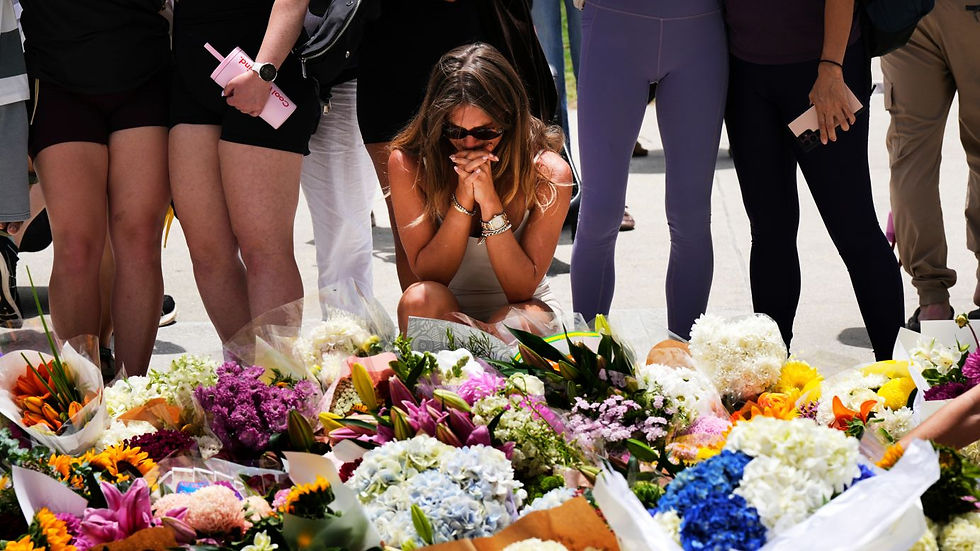The Ceasefire Triangle
- rotemaoreg
- Dec 14, 2024
- 3 min read

A friend from college died in the Gaza war. I’ve been to way too many funerals than a person my age should attend. I jump with anxiety every time I hear the siren of an ambulance. I hear people around me saying they can’t finish the day without a glass or two. More than one friend of mine who’s about to study abroad is having second thoughts because of the rising antisemitism on campuses.
This is not an attempt to undermine or overlook Palestinian suffering. The pain and tragedy Gazans continue to go through since October 7 are unspeakable, and my heart goes out to the Palestinian civilians. But October 7 is a trauma for every Israeli, and I use the word “trauma” on purpose. There’s a link between the psychological and the geopolitical.
Until the war, the Israeli-Palestinian conflict was largely ignored by most Israelis. A false sense of security and fierce debates on other issues (church-and-state, judicial legislation, corruption) enabled Israelis to look the other way.
However, October 7 made the conflict impossible to ignore. The murder of over 1,200 Israelis, the kidnapping of 251, the 250,000 Israeli refugees who fled the Gaza envelope and the Galilee, and the fact that almost on a daily basis soldiers keep dying in Gaza, are too heavy of a price that every Israeli pays. That trauma’s influence on geopolitics can be called Catch 10/7.
As the international community says that a two-state solution is the only path to peace, most Israelis, even from the left, hear “price to terrorism”. Calls from the world to provide aid perceived as demands to “assist the enemy”. The U.S.’s demand to make sure civilians are protected during combat is interpreted as “America doesn’t want us to win”.
However, at the same time, when the radical right in Israel (who’s represented in the coalition) calls to seize the “historic” opportunity and resettle Gaza, most Israelis, including on the right, know that resettling Gaza means an endless, pointless war, with hundreds of avoidable casualtiesת Palestinian and Israeli.
And so, Israel is stuck in the gravest moment of its history: we don’t want to make concessions, we don’t want to re-occupy Gaza, and we can’t just keep turning a blind eye to the ongoing conflict.
So, how do we move from here?
A good first step could be adopting the “Ceasefire Triangle”, the three objectives that from Israel’s perspective are crucial in order to end the war. One is the immediate return of all the hostages, which 72% of Israelis support ending the war in order to make that happen. The released hostages share unspeakable, atrocious human rights violations. They must return.
Second, is ensuring Hamas is dismantled. This is not a maximalist approach that seeks killing or capturing every Hamas militant in Gaza, and it does not involve permanent military presence in Gaza. It is about dismantling its military and governing capabilities, making sure Hamas has no future, as it is posing a threat to Israelis, to Palestinians, and it is also the largest obstacle to peace.
Third, is creating a long-term reconstruction process in the Palestinian society. The fact that Hamas was elected in 2006 doesn’t mean that all Gazans support it; but the group does enjoy a good deal of popular support. We must dismantle the social institutions that glorified violence against Israelis (the reform in the textbooks in the UAE is a good model) and replace them with pro-coexistence institutions.
Founded four years ago, LIBRAEL is promoting just that: advocating for Israeli interests, in a way that is compatible with liberal values. We know that supporting a secure, prosperous, democratic nation-state for the Jewish people and that believing in freedom, justice, and human rights are far from mutually exclusive. The Ceasefire Triangle is proof of that. Adopting it would ensure the enormous prices we are paying are not in vain.




Comments